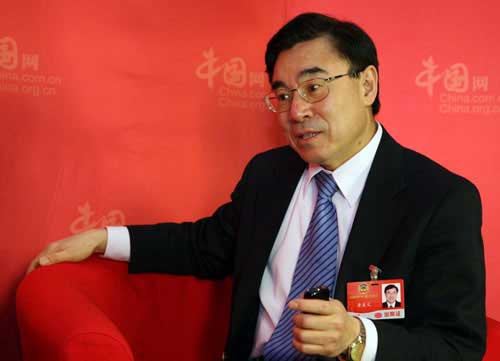By He Shan
China.org.cn staff reporter
China is reportedly to invest 20 billion yuan to build a powerful media network, in a move to get its message across to the outside world.
"It is natural for China to do so. The current struggle between East and West is mainly for the right to be heard," said Huang Youyi, vice president of China International Publishing Group, on the sidelines of the annual session of the CPPCC.

There is one problem: media exposure does not necessarily increase the world's love for China.
According to Huang, the government should rely more on "soft power" — the appeal of ideas, culture and way of life—to convey the message that China is a friend, not an enemy.
It's said that Xinhua News Agency, CCTV and People's Daily have been selected in the plan as image-shapers to convey the voice of China to the world.
"I think other media organizations will also step into the plan," said Huang.
The recent fire at new CCTV headquarters in Beijing has caused soul-searching in the state-run media as many netizens could barely contain their glee over the company's misfortune.
"Schadenfreude is unhealthy. A disaster should provoke regret and sympathy, rather than guilty pleasure," said Huang.
"But there really is something for CCTV to reflect on. The more influential the media is, the more responsibility it shoulders."
With so many media players today, the best it can do is try to improve its own credibility, but turning around the sentiment for the press as a whole will be challenging.
Just a couple of minutes after the fire, news and pictures of the burning building had already been put on the Internet by bloggers, even before Xinhua covered the accident.
"It is a great challenge for the mainstream media," said Huang. "But there is a more serious problem. News must be confirmed before it is reported."
"The 'grassroots' media are generally less professional and sometimes sacrifice accuracy in pursuit of speed," he added.
But the mainstream media's tardy approach to reporting the fire suggests that they have to struggle with how to deal with breaking news in the age of cell phones, cameras and access to online media.
(China.org.cn March 10, 2009)